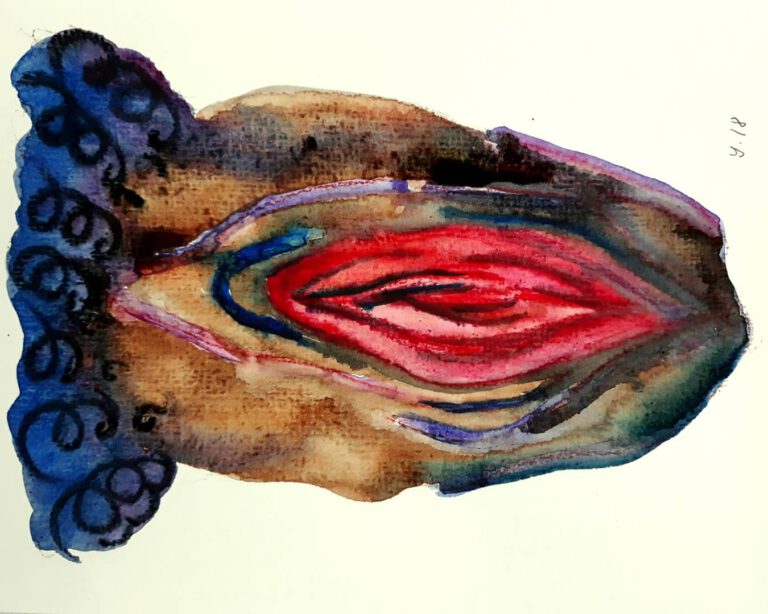
INTERVIEW MIT YANKA SMETANINA
Why did you decide to become an artist?
I decided to become an artist at the moment, when I realized that I see no reason to invest my time in utilitarian things. My education gave me the opportunity to make good money using graphics or motion design, but I did not feel the same return on my work as I got by drawing a picture or doing an art project. Therefore, at some point, when the priorities became obvious, I simply allowed myself to do what I loved.
What do you want to express with your art?
I work with social issues and the full spectrum of my personal experiences. My work deals with topics such as memory, violence, trauma, our relationship to our bodies, and the personal as political. Sometimes I am just a voice for my heroines, who are often deprived of even this right. If my works give a reason to think about the fact that there is still pain, violence, discrimination in the world, then I will assume that I am not working in vain.
Your work „Rosa“ about Rosa Luxemburg contains the sentence „Tut mir leid, Rosa“. What are your feelings towards her?
I have a close connection with Rosa. And this work, of course, contains many personal messages. I moved to Berlin and my move coincided with the fact that I was translating and typesetting Kate Evans‘ „Red Rose“ for the Moscow’s department of the Rosa Luxemburg Foundation. It was, as they say, complete immersion: Berlin, revolution, Rosa Luxemburg. Thanks to Kate, I learned a lot about Rosa’s personality, and her friendships and letters revealed her very deeply. I was just starting to work with the theme of “body” and ripping off Rosa’s clothes was quite logical in the context of my work. To show the fragility of a person-symbol, a person-legend, fragility and courage at the same time, not to let it turn into a cold ideal, to leave something human. And the inscription “tut mir leid” is a regret, but not about torn clothes. A hundred years have passed since the death of Red Rose, but injustice still exists, wars continue, and somehow we have not achieved freedom for those who think differently. So, I’m sorry Rosa, we haven’t done well yet, but we’ll continue.
Did your way of producing art or the content of your work, change during the corona pandemic?
Yes, of course, some of my work has changed. So I worked on the Imperfection project, about heroines with imperfect, imaginary flaws and I could not as actively as before look for my heroines. And I noticed that somehow by itself the focus of my work shifted to my own body. This is how the topic “the body as a memory” appeared: scars, tattoos, marks on the body. Looking outward has changed to looking inward. But this is in this project. We have all isolated ourselves and keep our distance, but there is the Internet and we are not deprived of information, which means we can continue to work on other topics that are of concern to us in addition to restricting freedom of movement. I also got more time for creativity and the opportunity to concentrate. To some extent, this is a fruitful period. Although there are fewer opportunities to show your work at exhibitions.